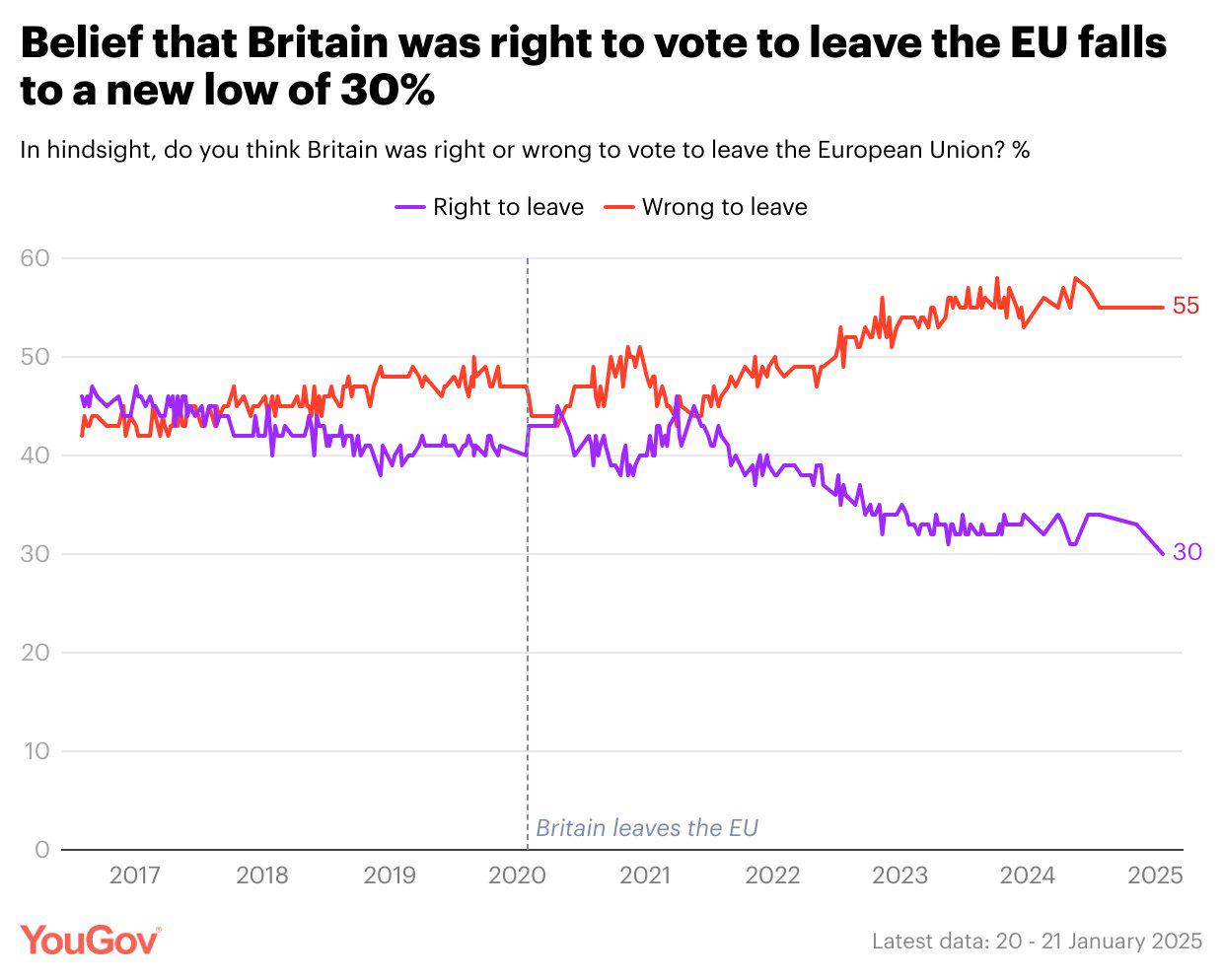That’s fair. Thanks!
UK ministers, including chancellor Rachel Reeves who will travel to Brussels on Monday, have said they are seeking a “very ambitious” reset of the UK’s security and trading arrangements with the EU when talks begin next year. However a 19-page working paper setting out EU interests observed there were “limited” economic gains on offer as a result of the UK’s own red lines ruling out rejoining the EU’s single market or customs union, or accepting free movement of people. “A significant further reduction of trade frictions with a close trading partner, such as the United Kingdom, would be in the interest of the European Union. This, however, would require a different model for co-operation,” it said.
Same old same old
Yes that’s why I copied the conclusion 👻🎃💀

